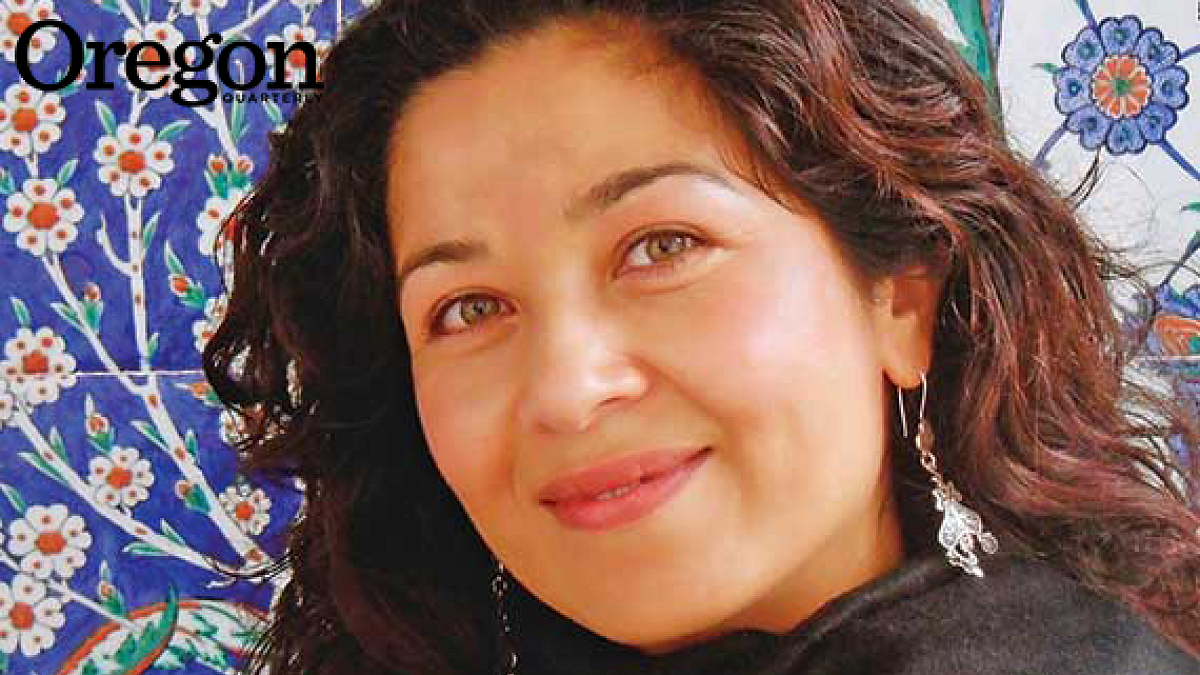Born in Afghanistan under communist rule, Angela Joya found her young life thrown into flux when her family fled the oppressive regime for the Islamic republic of Pakistan during the early 1980s. There they remained refugees for 12 years, stuck in a perpetual state of limbo. Imbued with a passion for reading, learning, and traveling, Joya lacked the means to afford private university, and girls were barred from attending public educational institutions in Pakistan. She describes this period of stagnation as mentally and emotionally destructive, saying, “I remember days where I would just think about death. Day after day.”
In 1996, the tireless efforts of a small church community in Montreal allowed the family to settle in Canada. Her experiences as a young adult led to a lifelong interest in the powerful external forces at work in the Middle East, and she went on to earn a doctorate in political science from York University in Toronto. When the time came to choose a region of study for her dissertation, she ruled out the homeland she’d left behind. “I wanted a challenge,” she remembers. “I’m going to learn about Egypt and Syria.”
Cities of the Dead
In December 2005, Joya flew to Egypt for the first time. During the descent into Cairo, she felt as though she was landing on another planet as row after row of housing blocks rose up from the desert below. Those airborne moments sparked her inspiration to study Egyptian housing and consequently, property rights.
It quickly became clear that access to land was at the center of conflict in Egypt. Laws deregulating rent in both urban and rural areas had sent many into debt or poverty during the 1990s. Joya traveled throughout the country, speaking to locals from all walks of life. She became particularly interested in city slums, and expressed an interest in visiting areas termed the “Cities of the Dead,” where small communities had sprung up around urban graveyards.
“I was told, ‘If you go there, you’ll never come back alive,’” Joya says. “And I had the most pleasant experience when I went there. It opens your eyes.” She met the women of the families who tended those forgotten graves, eking out a living on the outskirts of society. Joya was stunned by their extensive knowledge of everything from government policy to institutional processes. Rather than reinforcing stereotypes about ignorance or violence, the experience broke down Joya’s preconceptions about the hierarchies of knowledge and who is, in fact, knowledgeable. Conversations with the residents of these neighborhoods have helped shape Joya’s approach to a book she is writing about the political economy of Egypt.
Life in Limbo
As the crisis in Syria drew to a breaking point and refugees began flooding across borders, Joya traveled to Turkey in 2014 and 2015 to collect firsthand accounts.
The Turkish tourist industry has been a source of employment for many highly educated, trilingual Syrian men, but the work demands long days, minimal pay, and no vacation. Joya’s interviews started late in the evening when the men got off work and continued into the wee hours of the night while they smoked shisha, a flavored tobacco product, from hookah pipes and spoke about everything under the sun.
Most of the people Joya spoke to were in agreement that this life was not worth living. She saw the frustration, anger, and ambition of her younger self reflected in the reality of these refugees. “That state of limbo is a disease,” she says. “This desperation is so real.” So real, that the risk of drowning in an attempt to sail to Europe or the ethics of accepting a paycheck from ISIS pale in comparison to the possibility of finding meaning in existence.
Finding a Path to Peace
Joya observes that uprisings occur wherever social norms are disrupted and economic stability disappears. Groups like Al Qaeda and ISIS are motivated by these fundamental shifts in societies. She asserts that US culture often ignores the question of why these crises arise and rushes to apply worn-out military solutions.
“They are completely different than us—that’s what the media always emphasizes,” Joya says. “But the moment you move away from culture and religion as defining features, then all of a sudden you start seeing all these other reasons why this is happening.” She believes that the only successful approach to dealing with these threatening organizations will be peaceful negotiation.
“In some ways the world looks as though evil is left and right,” Joya says. “But for me there is possibility of going forward to something more humane and less polarized.”
—By Chloe Huckins
Former OQ intern Chloe Huckins, BA '16, is a freelance writer and producer living in Portland.


